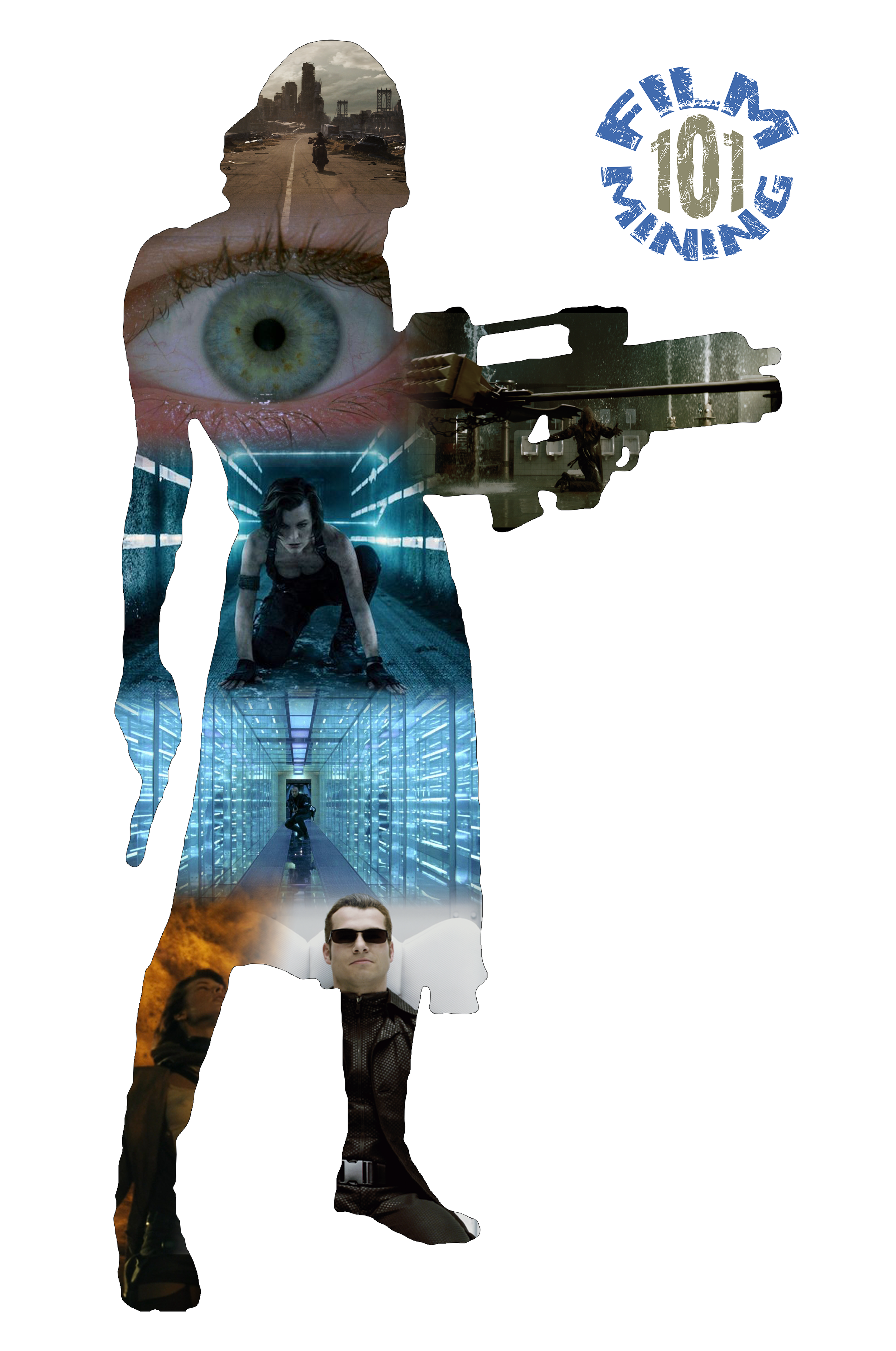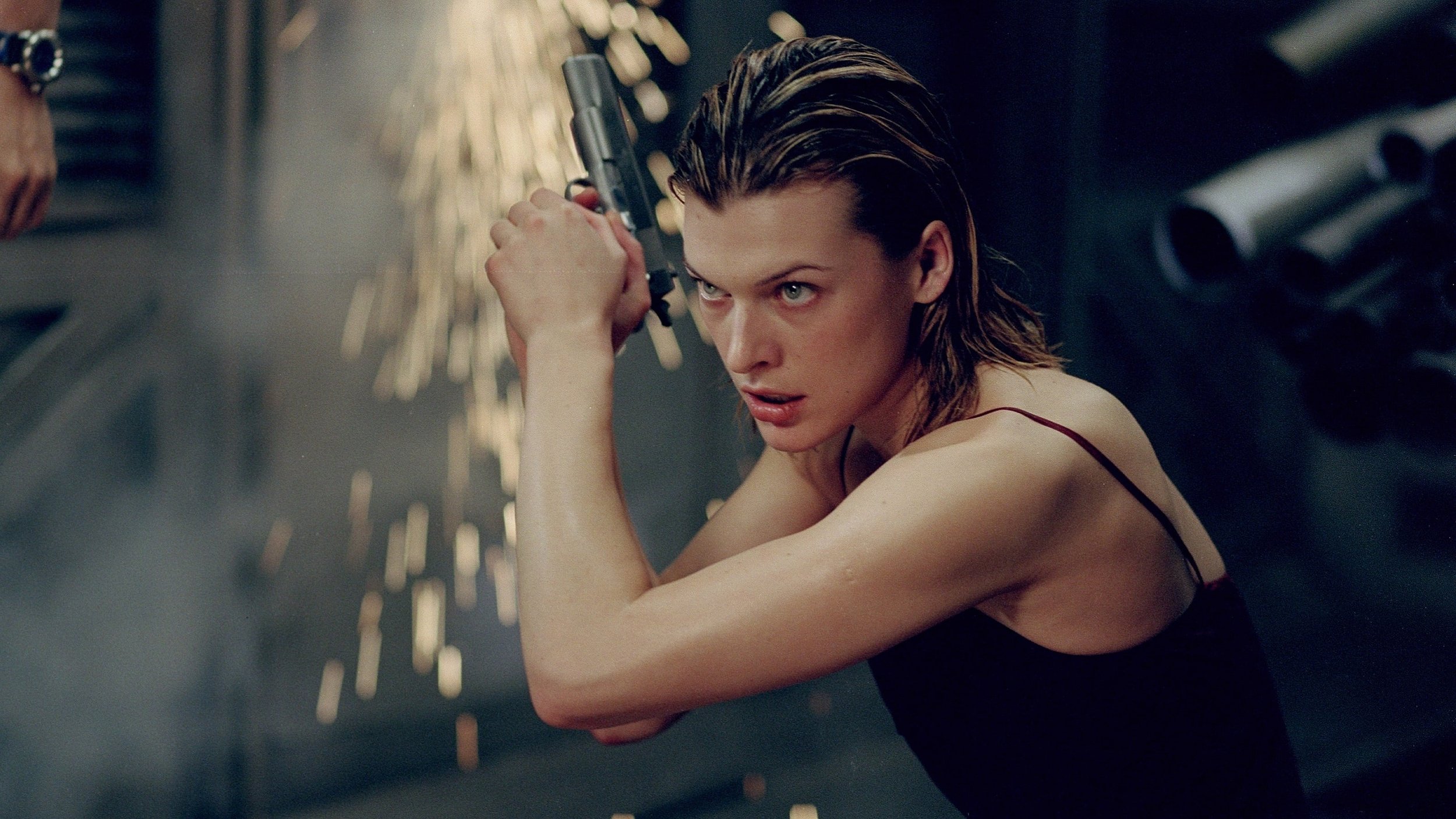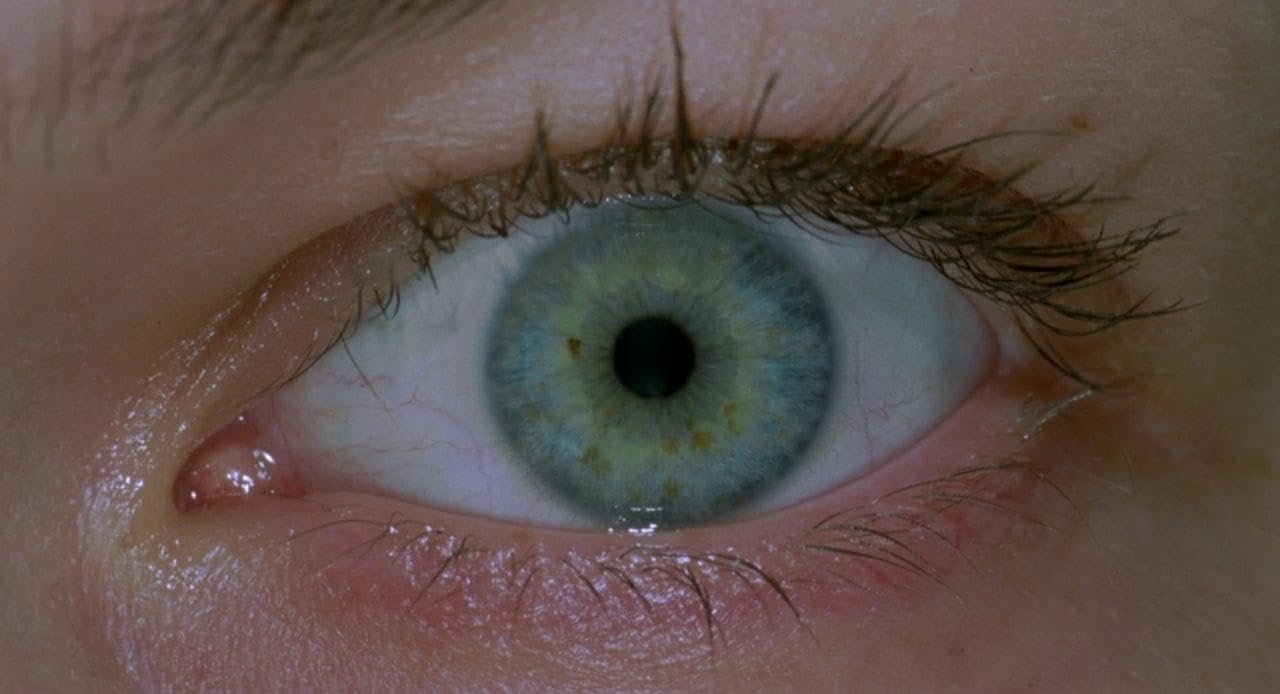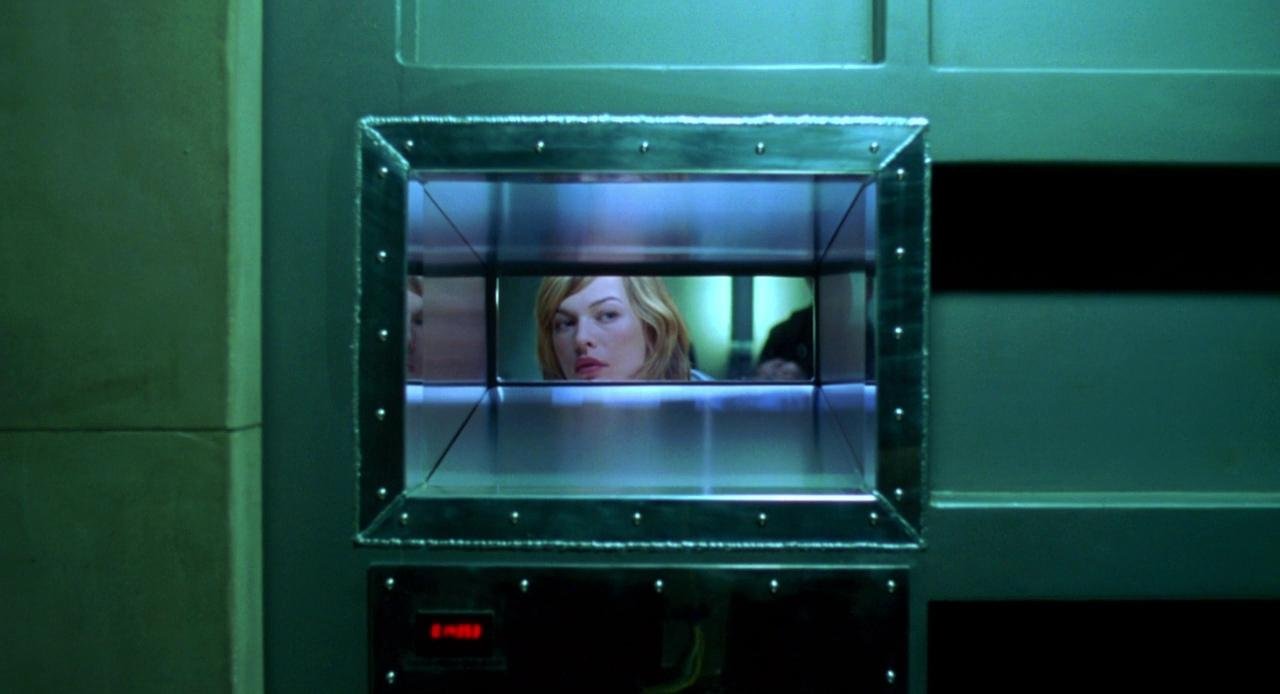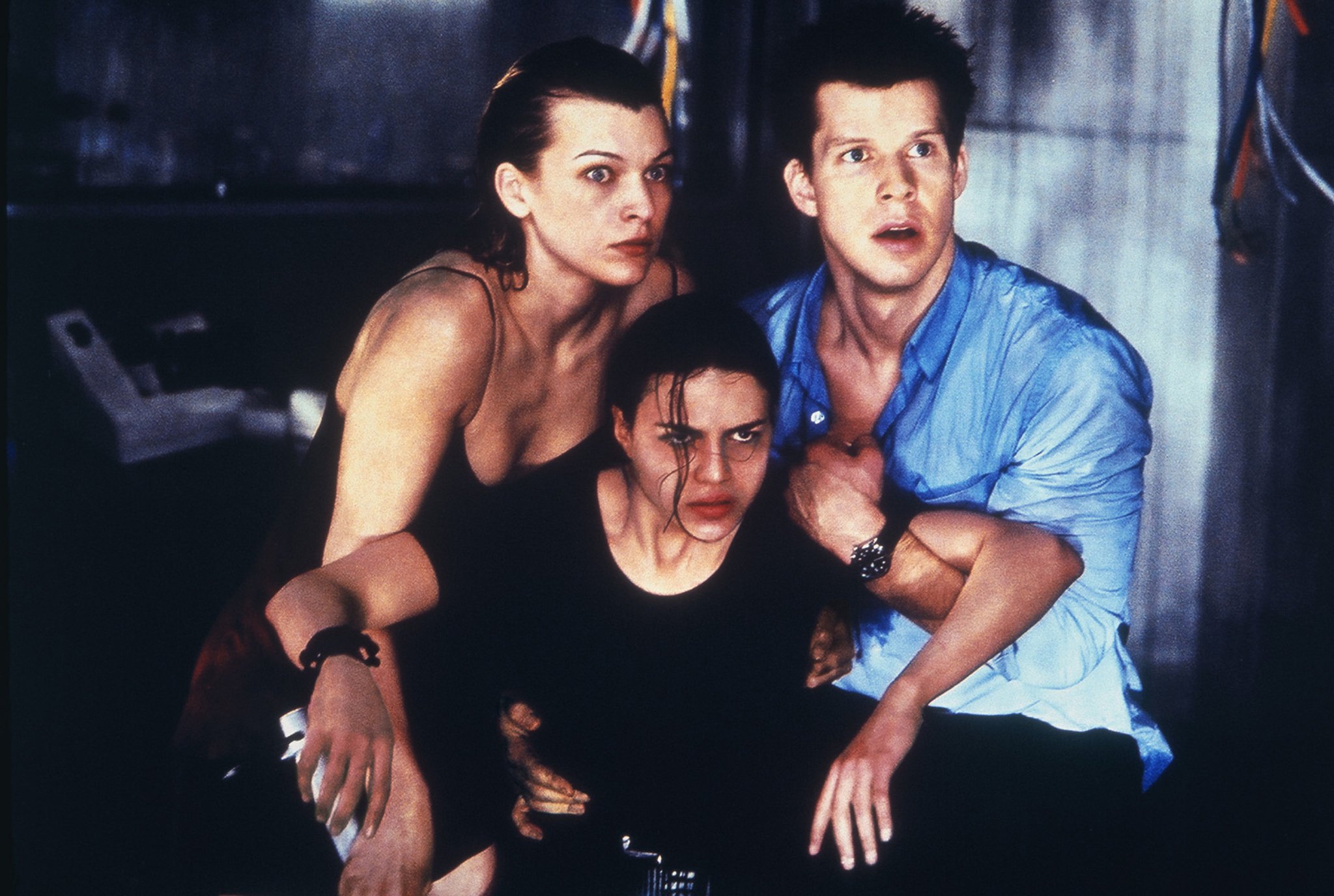Resident Evil (2002)
Director: Paul WS Anderson
Starring: Milla Jovovich, Michelle Rodriguez, James Purefoy, Eric Mabius
Primary genre: Action
Secondary genre: Horror
READ ALSO
One could consider “Resident Evil” (2002) to be the creative turning point for Paul WS Anderson. Once a talented newcomer in the City of Angels with a eye for visual flair, he scaled back after Paramount intervened in his sci-fiction horror magnum opus “Event Horizon” (1997) and the lackluster reception of the very expensive “Soldier” (1998). Relying on an extra small budget and backed by international funds, he begun to conceive (i.e., directing, writing, producing) his own movies. “Resident Evil” was the first.
Taking some elements from the first game (e.g., the mansion, the outbreak, the lab), he adds his own story spin and seeking to convince studios to invest on a female led zombie flick when interest to this subgenre ranged from minimal to zero in the early noughties. Eventually things went his way and Anderson delivered a remarkably relevant to our days techno-horror hybrid that works better as a game prequel than a faithful adaptation (don’t expect to see Chris, Albert of Jill here). Any changes though make room for a few compelling messages; the black and white terrors of advanced AI (e.g., “I don’t deal in chance” is so cold) and humanity’s reliance on technology prove to be a fatal mistake; its strong anti-corporate crusade about the dangers of playing god in bioengineering for profitable reasons never feels ham-fisted enjoying a relevancy status in the current condition the world is in today.
Be that as it may, “Resident Evil” is highly stylish showcasing Anderson’s enthusiasm for the material and boasting some pretty nifty ideas (e.g., the AI is a little girl, the infamous corridor, zombie dogs!). Despite a restrictive $30 million dollar budget, he makes most out of every scent - long takes, pull in shots and unusual camera angles - by bringing panache to the confined (and convincing production design wise) environments of an underground lab, creating a luminous sense of claustrophobia, particularly in the first half where the remarkable sound editing does all the dirty work. “Hear, don’t tell” is the motto and Anderson deploys a metallic soundscape, all the more foreboding when the hybrid score of Marco Beltrami and Marilyn Manson uses ambient, industrial cues across a wide range of frequencies to a pulse pounding effect. This is fascinating stuff.
From its panic inducing opening, Anderson wisely (or perhaps due to budget limitations) prohibit us from seeing the outcome bearing Lovecraftian story traits through the power of discovery. In the same vibes which Alfred Hitchcock utilized his suspense tactics, we know what has happened but the investigative military unit does not. Thus, when the time comes, an inevitable (and compelling) clash is ensured as they have to improvise their escape. With the chances of survival diminishing at a frantic pace, the dramatic stakes escalate through traps, zombies, dogs, a homicidal AI, bioweapons and a ticking clock to top everything off. Ethan Hunt would have quit at this point. The script is filled with tension, assisted by excellent momentum throughout a number of memorable and subverting set pieces which appreciate atmosphere first and gore second (much to the disappointment of horror hounds) across several unique locations of a massive research facility.
Seeing the plot unfolding through the eyes of a temporary amnesiac Alice is a clever way to introduce twists and turns as we move cluelessly to the next segment. Anderson nods numerous times towards “Alice in Wonderland”, a choice that might feel surreal initially but becomes surprisingly and orthodoxically complementing to the gravity of the situation, giving a bit of finesse to what could have been another film of the dust bin pile. The cast gives it all too. Jovovich has enough screen presence to become a new action icon, transitioning nicely to a genre heroine as the likeable Alice. Rodriguez is convincing but it is a shame that she and co do not have much to do, yet ultimately they fail to betray the movie’s spirit.
Not withstanding some wobbly shots of early noughties CGI (this can be disputed considering the film’s independent status and insistence on practicality), lack of gruesome zombie make up effects or strong violence to make things visceral, “Resident Evil” is a tonally cohesive fusion of action-horror and does not outstay its welcome. Sharing a lot of similarities with James Cameron’s “Aliens” (1986), it offers inventive thrills, a kick ass soundtrack and a brand new action icon. As the only small scale entry in the now long standing and billion dollar worthy franchise, it is an adaptation done right, honoring the spirit of the game while blending new components to ease newcomers. “You are all going to die down here!”
Tense, expertly paced videogame adaptation
+Fantastic atmosphere
+Anti-corporate message
+Stylish direction
+Milla becomes an icon
+Great pace and set pieces
+Awesome score
-Not visceral enough
-More of a prequel
-Luckluster zombie make up

